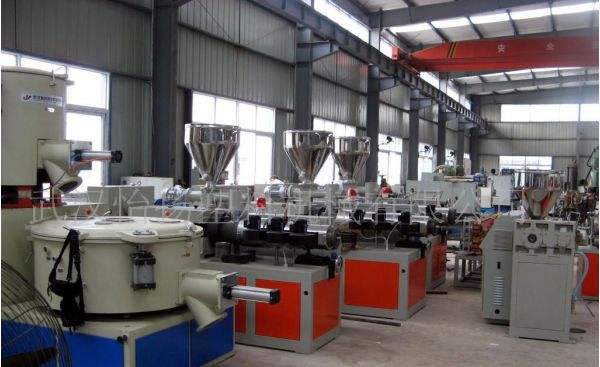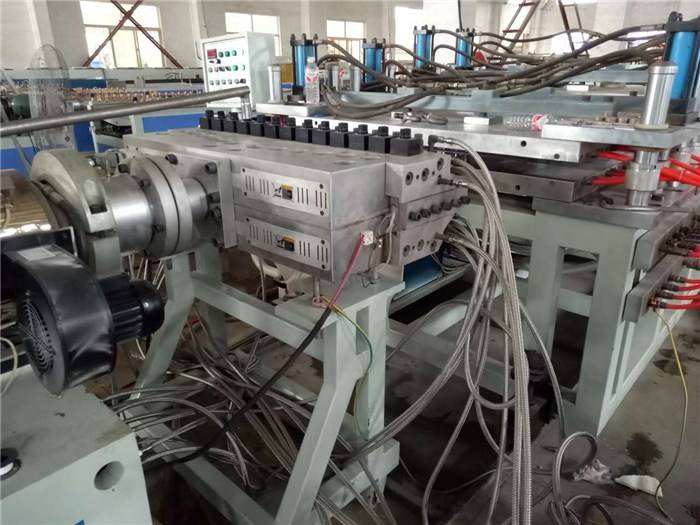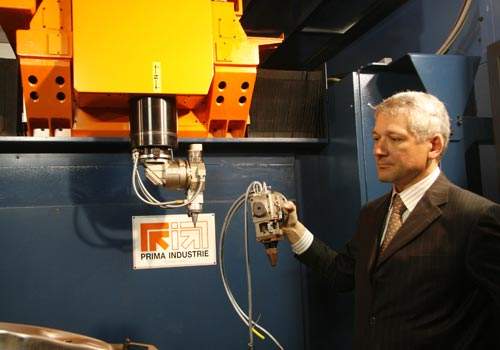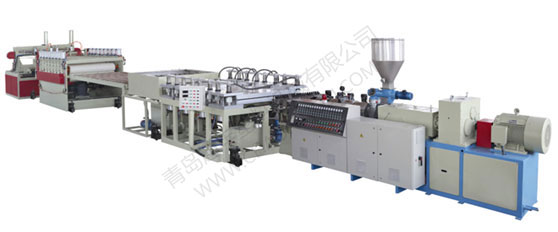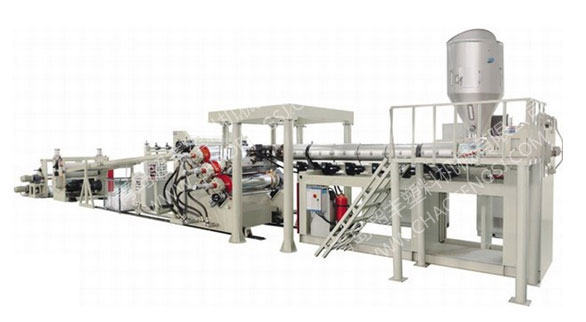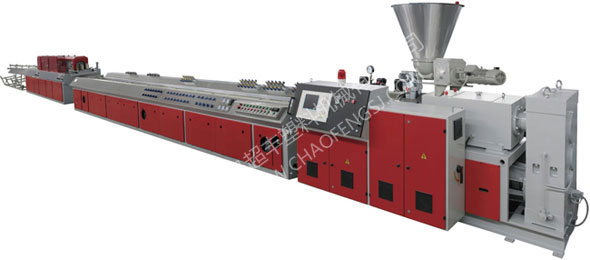At present, the global plastic chemical raw materials market prices continue to rise, but market demand is still strong. At the same time, with the increasingly severe white pollution prevention and control situation, the market prospects of recycled plastic granulators are consistently optimistic. In recent years, the plastic machinery industry has developed rapidly, and China is also vigorously supervising the development and transformation of the plastic machine industry. With the acceleration of the globalization process, the concept of plastic granulation design and production has undergone major changes again. A full-service three-dimensional, systematic service plan has been introduced, which has brought development opportunities to plastic granulator enterprises, and is also a manufacturer of plastic products. Created better production conditions.
POLYSTAR efficient recycling granulator is adopted by many companies
It is reported that the professional recycling machine for PE film in Tokyo, Japan, has re-purchased POLYSTAR HNT-120V large-scale film waste recycling and granulating equipment in one year to recycle and process industrial film waste in LDPE and HDPE plants. - 500 kg / hour. The source of these industrial film wastes is from plastic waste produced by local Japanese specialty bags for heavy and non-printing films.
In addition, since 2016, POLYSTAR has worked closely with a large packaging film manufacturer in the United States that has been in existence for more than 30 years. The HNT-120V film waste special recycling granulator, which can produce up to 1,100 lbs/hr of capacity, is used for recycling and processing of HDPE and LDPE film plastic waste in the factory.
The POLYSTAR recycling granulator can be used not only in the blown film machine and the cast film production line, but also in the high-precision unit core component system integration, highly intelligent feeding system and automatic pelletizing system. More than 20% more than the traditional recycling granulator. It has easy-to-use operating characteristics, efficient and stable production quality and performance, and is favored by customers due to its high return on investment. At the same time, it is very important to provide a complete solution and a complete personalized service in the production process.
Nowadays, with the changes in market demand, most of the international plastic granulator companies are no longer providing customers with a single equipment product, but with a full set of process solutions to the market, it can be said that the plastic granulator manufacturing has been made. The strategic transformation of service-oriented manufacturing.
Service-oriented manufacturing transformation strategy
The so-called service-oriented manufacturing is based on manufacturing services and service-oriented manufacturing. In order to realize the value added of various stakeholders in the manufacturing value chain, through the integration of products and services, the full participation of customers, and the mutual supply of productive services and services. Sexual production, achieving the integration of decentralized manufacturing resources and the high synergy of their core competencies, to achieve a manufacturing model of efficient innovation.
This is a development concept from “low-end” to “high-end”. It is not the advanced nature of the production process of a single device for plastic granulators in the traditional sense. If some new technologies, new manufacturing methods, new testing methods, and new matching parts are used on the original equipment, and the molding processing capability has no substantial scientific and technological progress, only providing excellent equipment is inevitably at the low end of the value chain. .
To develop a service-oriented manufacturing industry, plastic machine enterprises should do a good job in three aspects, mainly to highlight the main production, strengthen R&D and marketing, and build a full supply chain. Service-oriented manufacturing shows that high-efficiency plastic granulator manufacturing is a plastic granulator at the top of the value chain of the complete solution, highlighting its ability to shape and process, and is one of the criteria for measuring the technical level of plastic granulators.
However, with the advent of a new round of technological revolution in the world, smart manufacturing has become the development trend of the plastic machine industry, and the plastic granulator market has also shown a trend of demand for intelligent and intelligent.
Multi-functionalization and intelligentization into new market demands
First of all, diversified production and multi-functional production are the main production modes of recycled plastic granulators to meet consumer demand. Modern consumers pursue the richness of food taste, and the production of recycled plastic granulators tends to be multi-variety and small batch. Correspondingly, the diversified packaging machine with multiple switching functions can adapt to a variety of packaging materials and mold replacement to meet the needs of the market.
Secondly, the intelligent control system conforms to the production demand and is the development trend of recycled plastic granulator. In order to make the packaging granulator have good flexibility and flexibility, and to improve the degree of automation, it is necessary to use a large number of microcomputer technology, module technology and unit combination. For example, some of them are suitable for the production of multi-station bag vacuum packaging machine, which can integrate various functions such as bag making, weighing, filling, vacuuming and sealing, which is convenient and quick, and the production efficiency is greatly improved.
Of course, in order to meet the requirements of delivery time and reduce the cost of process circulation, the future recycled plastic granulator not only requires high-speed production, but also requires special plastic products to be connected with recycled plastic granulator and production granulator. At the same time, in addition to the need to increase the speed, the plastic granulator needs to work continuously or in multiple positions. In addition, the scrap rate and failure rate must be reduced to ensure normal productivity.
In addition, the application of artificial intelligence technology enables the regenerative plastic granulator to be further intelligentized, such as self-diagnosis of the device and self-repair function. It is foreseeable that in the near future, intelligent control technology will not only be the technological development direction of recycled plastic granulators, but also the overall development trend of future industrial production and the entire manufacturing industry.

 Position:
Position: